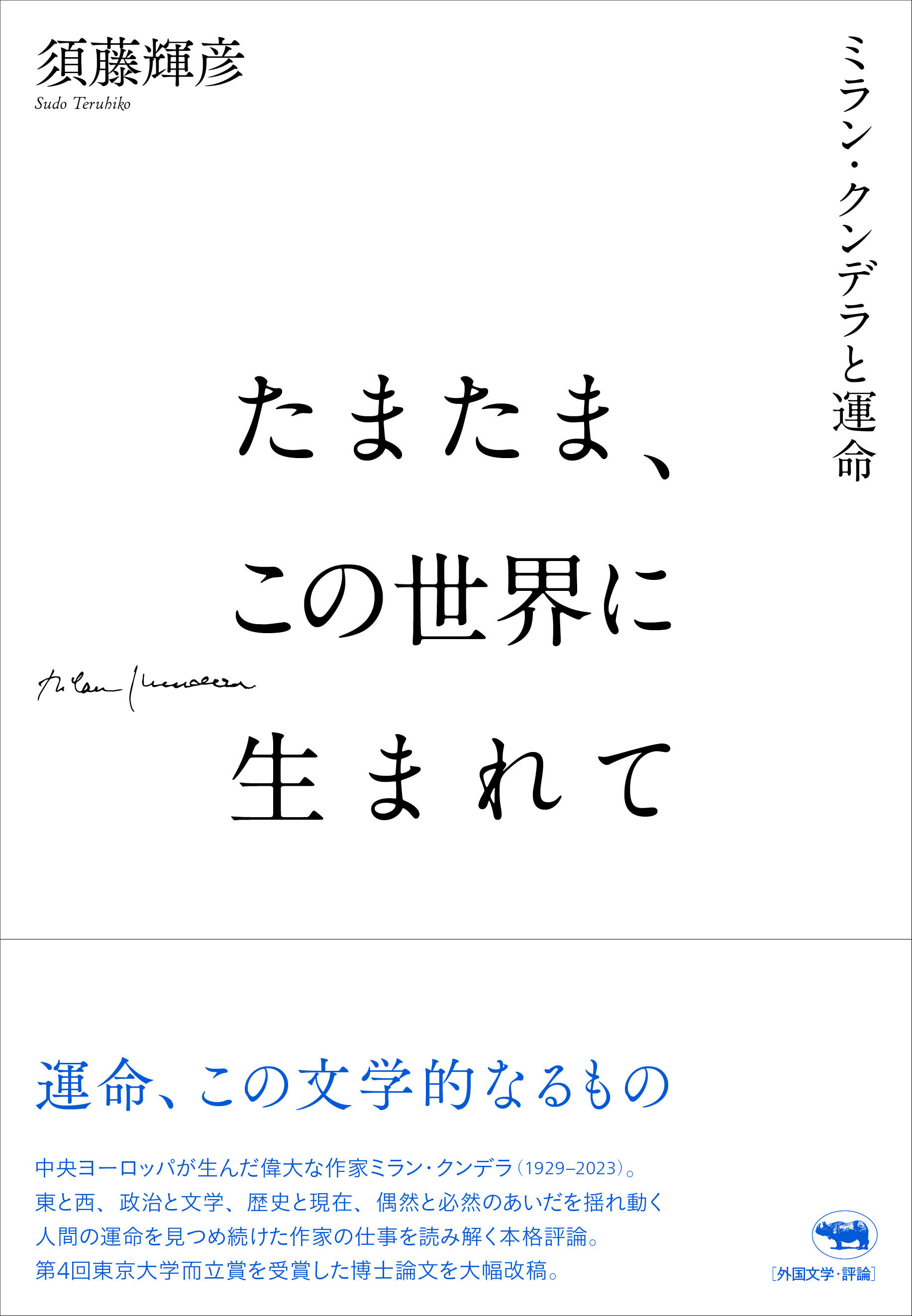
Title
Tamatama Kono Sekai ni Umarete (Happened to Be Born into This World - Milan Kundera and Destiny)
Size
388 pages, 127x188mm, hardcover
Language
Japanese
Released
March, 2024
ISBN
978-4-7949-7416-7
Published by
Shobunsha Publications, Inc
Book Info
See Book Availability at Library
Japanese Page
What comes to mind when you hear the word “destiny”?
Some say that destiny is unchangeable. Others believe that it is something they created on their own, others argue that destiny does not exist. These views reveal the flexibility and contradictions of the concept of destiny. For some, it may evoke a spiritual or even occult resonance. In recent years, genetics, physical appearance, and buzzwords like “parent lottery” (in Japanese, oyagacha) have also made their way into this concept.
The works of Milan Kundera (1929–2023), a Czech-born novelist, embody the rich and varied allure of destiny with striking clarity. What do we mean by this? Let us look at the following example. In the closing pages of The Joke, Kundera’s first novel, there is a curious remark: “One’s destiny often completes long before death. The moment of ending does not coincide with the moment of dying.”
Isn’t this claim strange? Ordinarily, when we speak of someone’s “destiny,” we refer to their entire life course—from birth to death. However, Kundera’s protagonist articulates a view that diverges sharply from the standard understanding. If destiny, which is supposed to govern life, ends before death, what remains in the stretch between the end of destiny and the arrival of death? How do one live in a vacuum devoid of destiny?
The book addresses this question, for example, through Francis Fukuyama’s famous idea of “the end of history.” Fukuyama’s 1989 hypothesis, rooted in Hegelian and Kojèvian thought, claims that history, driven by ideological conflict, effectively ended with the global triumph of Western-style liberal democracies. While this observation now appears overly optimistic—especially given the current decline of the American hegemony—it is worth noting that The Joke, published in 1967, portrayed a version of “the end of history” long before Fukuyama and in a much more urgent and existential light.
Kundera’s characters, who plunge into socialist activism in their youth only to suffer disillusionment, all experience, in his words, the “collapse of communism” decades before it occurred. Toward the end of the novel, the protagonist asks, “What if history plays jokes?” This question arises from the grim realization that he, once committed to shaping history and liberating humanity from oppression, has instead been toyed with by history and destiny, understood as the narrative of his own life. In this light, the “end of destiny” becomes a miniature version of the “end of history,” and these two “ends” overlap like a double-exposed photograph.
Kundera’s prism of destiny encompasses not only the trials and failures of socialism, but also deeply personal and universal themes such as love and death, the historical struggles of his native “Bohemia” and Central Europe, and his relentless pursuit of literature and freedom. All this is articulated through a sensibility that is at once supple and profound—being shaped by the enduring currents of European intellectual tradition and resisting exhaustion or reduction for simplicity.
This book explores how destiny operates in Kundera’s work by examining its entanglement with diverse themes, including history, melancholy, irony, nationalism, romanticism, tragedy, world literature, contingency, and antinatalism. It presents destiny as a reflection of the limits of human understanding and the tension between contingency and necessity. For those who wish to think more deeply about the idea of destiny, are drawn to the cultural textures of Czech and European life, or are curious about the rich dialogue between literature and philosophy, this book hopes to offer not only insights, but also provocation and companionship in thought.
(Written by: SUDO Teruhiko / August 25, 2025)
Related Info
The 4th UTokyo Jiritsu Award for Early Career Academics (The University of Tokyo 2023)
https://www.u-tokyo.ac.jp/ja/research/systems-data/n03_kankojosei.html



